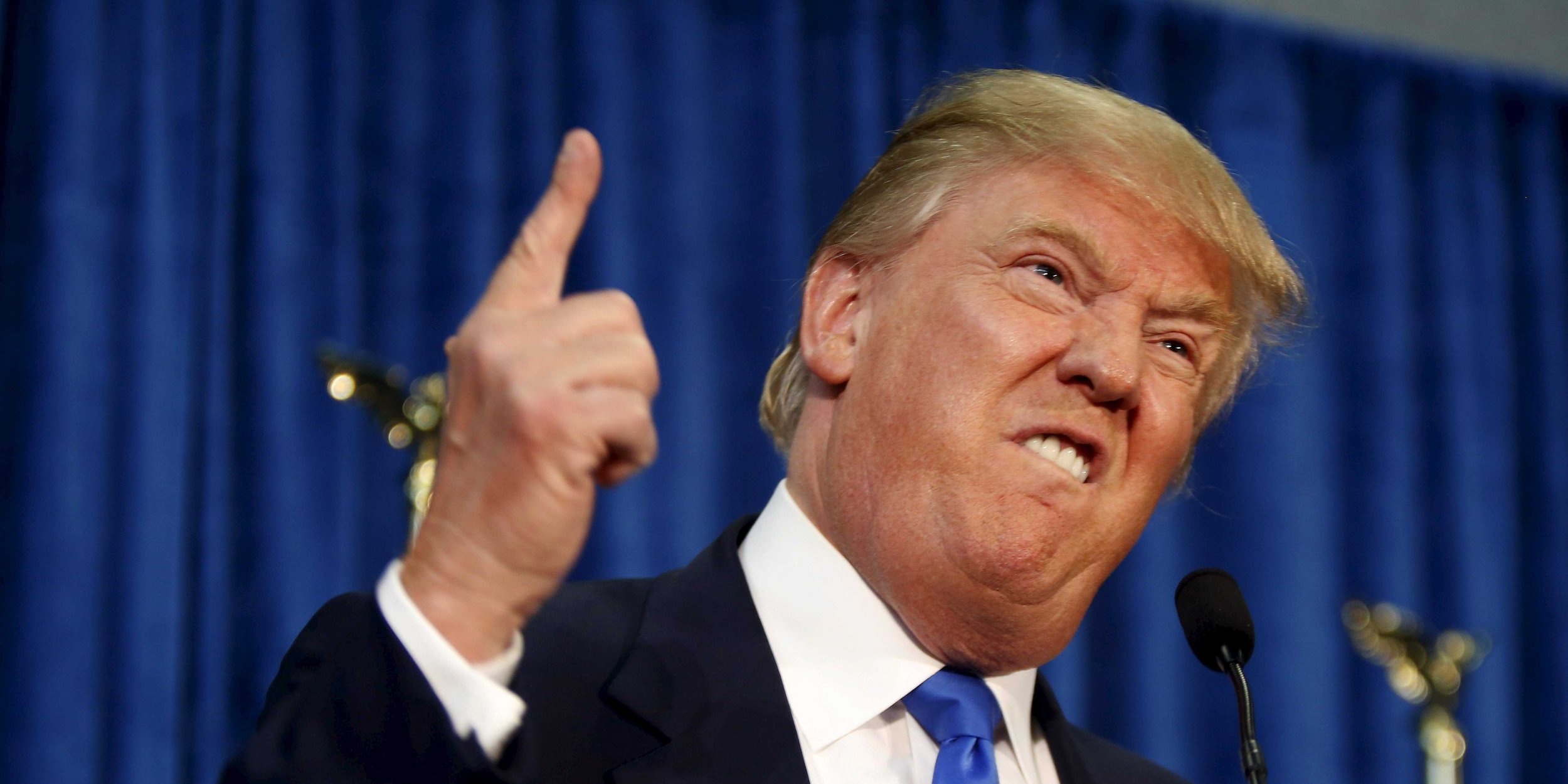How Do Journalists Cover a Habitual Liar Like Trump?
Journalists gearing up to chronicle next year's Presidential election face a special challenge. How do reporters who are committed to telling the truth cover the leading Republican candidate who is a habitual liar?
"That is not an easy question to answer," admits John Dempsey, retired news director at Chicago's iconic WLS AM, "mostly because America has never before seen a political figure like Trump."
Dempsey points out that Americans have certainly seen their share of demagogues and populist politicians, and politicians who consistently lie, but have never seen before a politician who possesses those traits, who has also been elected President once, has a strong chance of being re-elected, and has taken over one of America's two major political parties.
"Also, we have never seen a former President facing 91 felony charges stemming from four different cases," he adds.
Dempsey notes that at the end of Trump's term as President, the Washington Post was able to document that he had made 30,573 false or misleading claims during his presidency, averaging about 21 false claims per day.
One easy thing media outlets can do, he says, is refrain from airing Trump speeches live, or unedited.
"To air his comments live or unedited is to allow Trump to lie without the media providing context or fact checking his statements," Dempsey maintains. "When reporters fact check Trump and discover that he lied, they should point that out in their coverage."
As an example, he cites Trump's likely acceptance speech at the GOP convention this summer in Milwaukee, should the current front runner ultimately prevail as the Republican nominee.
"No doubt, Trump will repeat the lie that the 2020 election was stolen from him," Dempsey states. "When that happens, media outlets need to point out that every court challenge made by Trump and his team failed and that no proof that substantial fraud occurred was ever given."
According to Dempsey, other media watchdogs have pointed out that reporters should focus less on the "horse race" aspect of the race, or who is up or down in the polls, and focus more on what a Trump victory would mean for American democracy.
"Trump encouraged rioters to storm the U.S. Capitol to try and overturn the results of a fair election that he lost, and he is on record praising various dictators around the world," Dempsey emphasizes.
Part of the problem, he believes, is that many reporters are afraid of being labeled "liberal" so they bend over backwards to treat Trump the same as other politicians.
"I feel this is a mistake," Dempsey explains, "because Trump is unlike any other politician America has ever seen, and responsible reporters must never stop reminding readers, viewers, and listeners of that fact. Journalists must never stop seeking the truth."
Ernest Wiggins, professor emeritus of journalism and mass communications at the University of South Carolina, fully concurs and adds that all working journalists reacquaint themselves with Bill Kovach and Tom Rosenstiel's seminal work from 2001, "The Elements of Journalism."
"The principles they present would be terrific guidelines for covering not only Trump's candidacy -- as riddled with untruths and misdirections as it is -- but any of his imitators and those who view his approach to public messaging as a useful and effective model," Wiggins says.
Acknowledging that neither of the authors ever imagined that a person like Donald Trump could ever be a viable candidate for public office, he points out that their first principle establishes the foundation for any journalistic enterprise -- obligation to the truth, freedom from bias and manipulation.
"The second flows directly out of that: "loyalty to the citizens," Wiggins says. "To me, these are antithetical to what I see in Trump's public messaging and actions, which are more aligned with dishonesty and self-regard."
He further adds that Kovach and Rosenstiel say a large part of this commitment to truth and to the public is in adherence to verification -- checking and double-checking the accuracy of information that's been gathered.
"This can be especially challenging when untruths flow like water," Wiggins acknowledges, "so the best approach might be to do no harm and not report unverified or dubious statements to the public."
According to Wiggins, the authors also urge journalists to guard their independence so that they can more effectively monitor the actions of the powerful and offer members of the public what they need in order to make the best decisions impacting their own lives.
"This would mean avoiding sensationalism and bombast," he observes, "which can skew perceptions, lending greater importance to trivial matters and shifting focus away from what is most crucial to public life."
De-emphasizing the sensationalism and bombast of a Donald Trump while focusing much more on the hard issues facing voters in 2024 tops the wish list of Suzanne McBride, dean of the School of Graduate Studies and a journalism professor at Columbia College Chicago, one of the nation's top media arts colleges.
McBride, who also works as a part-time editor at the Chicago Sun-Times, agrees that Trump's falsehoods should be fully acknowledged by reporters on the campaign trial.
She hastens to add, however, that they need to sharpen their focus on the problems facing the country and the best ways to address them.
Rather than covering campaign speeches - which by design can lack detail and verified facts - journalists should spend more time reporting deeply on policies that affect the citizenry and the stances each candidate, including Trump, has taken on those policies.
"I would love to see journalists go straight to voters via town hall meetings and other forums to see what's on their minds," she says.
Pointing out that since Trump rarely if ever gets into the weeds of a serious discussion about policy issues, McBride maintains that journalists need to fill that void and make sure that those issues get the coverage they deserve. Even if that means covering fewer stump speeches and photo ops.


